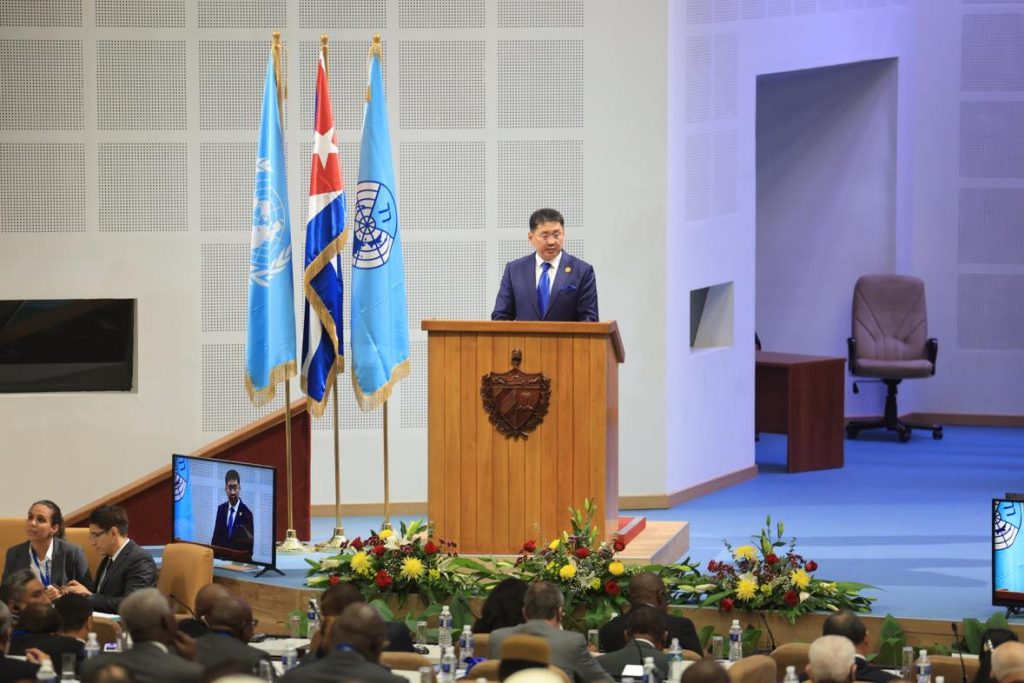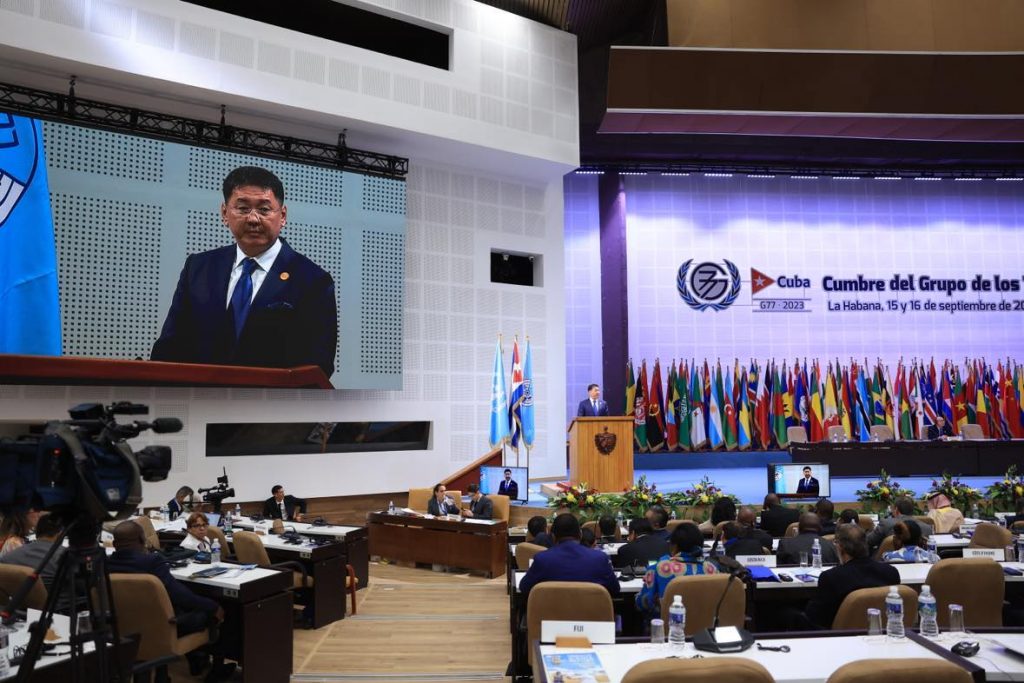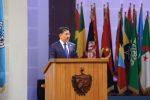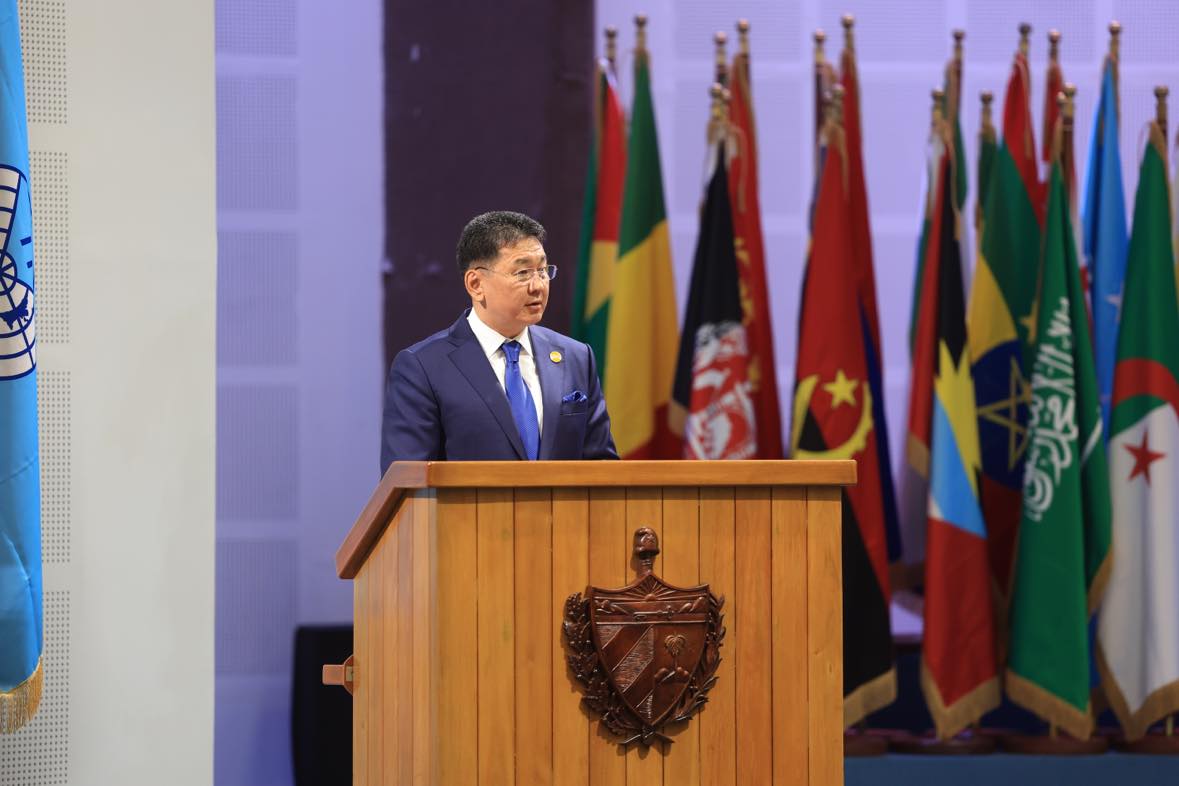THE STATEMENT AT THE SUMMIT OF THE GROUP OF 77 AND CHINA ON ‘CURRENT DEVELOPMENT CHALLENGES: THE ROLE OF SCIENCE, TECHNOLOGY AND INNOVATION
STATEMENT BY H.E. MR. UKHNAA KHURELSUKH, PRESIDENT OF MONGOLIA, AT THE SUMMIT OF THE GROUP OF 77 AND CHINA ON “CURRENT DEVELOPMENT CHALLENGES: THE ROLE OF SCIENCE, TECHNOLOGY AND INNOVATION
(Havana, Cuba, September 15-16, 2023)
Your Excellency Mr. Miguel Diaz-Canel Bermude, President of the Republic of Cuba,
Your Excellency Mr. Antonio Guterres, Secretary-General of the United Nations,
Excellencies,
Distinguished Delegates,
Ladies and Gentlemen,
First of all, let me express my deep condolences for loss of thousands of precious lives in Morocco and Libya caused by natural disaster, devastating earthquake and flooding.
At the outset, on behalf of the people of Mongolia, I would like to extend my warmest greetings to the leaders and the people of the Republic of Cuba, which is successfully chairing the Group of 77 and China in 2023.
I wish to congratulate you on the successful organization of the Summit of Heads of State and Government, in sunny Havana, to deliberate on the pivotal role of science, technology and innovation as catalysts for development, and a great success for the summit.
Mr. President,
As nations, it is our collective aspiration to coexist harmoniously and equitably in our shared homeland, regardless of ethnicity, race, age, gender, religion, or cultural distinctions.
Yet, the principle of “leaving no one behind in development” defined by us has not been fully realized. Disparities persist both in the levels of development among various countries and in the living environments and conditions experienced by different groups of people.
It is imperative that the Group of 77, as the largest group in the United Nations, consolidate its solidarity and further intensify its cooperation in order to overcome together the challenges and difficulties, including the recent outbreak of global pandemic, climate change, geopolitical conflicts, financial and debt crisis, as well as poverty and hunger, which are hitting developing countries hard and hampering their pace of development.
Even though, we have already passed the halfway towards the implementation period of the SDGs, which is the roadmap for fostering trust, unity and development, the UN Report 2023 reveals that just 12 percent of the Sustainable Development Goals are on track, while progress on 50 percent is weak and insufficient and progress on 30 percent has stalled or even reversed.
Development of science, technology and innovation plays a critical role in accelerating the implementation of the SDGs, as roadmap for global development, ensuring the equality of countries and nations, as well as expediting socio-economic development of developing countries.
The “Vision- 2050” long-term development policy of Mongolia envisages to create a national science and innovation framework which would be able to compete at the international arena and outlines to build up new recovery years of science, technology and innovation for the next decade.
With this intention, my country has intensified the digital transition, approved the set of digital transformation laws, simplified the government services, and successfully introduced a nationwide “E-Mongolia” platform in order to support the activities of both citizens and businesses, reduce corruption and bureaucracy, and ensure the information security. Our goal is to evolve into a Digital Nation and the Ministry of Digital Development and Communications has been established.
We are dedicated to bolstering our science and technology infrastructure and capabilities through the intensive development of the Science and Technology Park. As evidence of our commitment, we have already commenced construction of a Complex/Compound of Science Institutes.
Furthermore, Mongolia is keenly interested in collaborating with the Member States of the Group in the field of science and technology by sharing scientific and technological advancements towards achieving the SDGs, supporting innovation, and jointly implementing research projects and programs designed to address the regional challenges faced.

Мг. President,
For the landlocked developing countries, the science, technology and innovation, including the development of information and communication and its utilization, have essential roles in unlocking new opportunities to global markets.
I would like to emphasize that the International Think Tank for Landlocked Developing Countries, based in Ulaanbaatar, has been delivering high-quality policy research papers on many important issues on reducing disadvantages of geographical remoteness and enhancing connectivity, in particular on trade, transportation, transit, communication and disaster risk reduction.
It is our belief that the implementation of research works and projects through the International Think Tank, in collaboration with South-South and Triangular cooperation programs, has the potential to significantly expand their benefits, scope and global importance, particularly in support of developing countries, including the landlocked developing countries.
Mr. President,
The achievements of science, technology and innovation should be devoted to peace on Mother Earth, well-being of mankind and sustainable development of countries.
The mutual understanding and cooperation between developed and developing countries are crucial to create opportunities, such as the implementation of the principle of “Common, but differentiated responsibility”, the fulfillment of the commitments of official development assistance and climate finance, the increase of funding for science, technology and innovation related projects and programs, and the transfer of advanced technologies on preferential and favorable terms according to conditions of developing countries.
There is no doubt that the strategic partnership between the Global North and the Global South countries will be strengthened, and the sharing of knowledge, technology and innovation will be implemented efficiently and intensively if members of the group of the developing countries can unite their voices and steadfastly continue the negotiations and cooperation towards defending their common interests. For instance, the Group of 77 should consistently urge for lifting of economic, trade and financial blockage against Cuba. These will inevitably promote the advancement of prosperity and development of Cuba.
Also, we envisage that the “Global Digital Compact” proposed under the UN Secretary General’s “Our Common Agenda” report will be an important impetus for creating an open, transparent and secure digital environment for all.
I am confident that the outcomes of the current Summit of Heads of State and Government of the Group of 77 and China will make a significant contribution in promoting the advancement of developing countries and enhancing the role of science, technology and innovation in the implementation of the 2030 Agenda for Sustainable Development.
I wish every a great success for the summit.
I thank you for your attention.



